Coffee Alternatives And Tea
What Is a Good Substitute for Using Cream in Coffee That Tastes the Same

As someone who adores coffee, I understand how challenging it can be to locate an alternative to cream that maintains the flavor integrity. Fortunately, my research efforts have uncovered numerous alternatives that provide that desirable creamy texture without involving any dairy products.
In this article, we’ll explore a range of dairy-free alternatives, from plant-based milk options to non-dairy creamers and whipped toppings.
Get ready to enhance your coffee experience with expert tips and unique flavor infusions that will leave your taste buds satisfied.
Key Takeaways
- Dairy-free alternatives such as almond milk, oat milk, coconut milk, and soy milk can be used as substitutes for cream in coffee.
- Plant-based milk options like almond milk, coconut milk, oat milk, and soy milk offer different flavors and nutritional benefits.
- Natural sweeteners like honey, maple syrup, and homemade coffee syrups can enhance the flavor of coffee without using cream.
- Non-dairy creamers and plant-based cream alternatives provide a creamy texture and taste, with various flavor options available.
Dairy-Free Alternatives
If you’re looking for a dairy-free alternative that tastes just as good, try using almond milk or oat milk instead of cream in your coffee. These plant-based creamers are not only delicious, but they also offer a healthier option for those who are lactose intolerant or following a vegan diet.
Almond milk is made from ground almonds and water, providing a creamy texture and a slightly nutty flavor. Oat milk, on the other hand, is made from soaked oats and water, resulting in a smooth and slightly sweet taste.
Both alternatives can be easily made at home by blending the ingredients together and straining out any remaining solids. So next time you reach for the creamer, consider trying these homemade alternatives for a dairy-free and tasty coffee experience.
Plant-Based Milk Options
There are several plant-based milk options available that provide a similar taste in coffee. These alternatives not only cater to those with dietary restrictions or preferences, but also offer a range of benefits. Here are some plant-based milk options worth considering:
-
Almond milk: Made from ground almonds and water, almond milk has a subtle nutty flavor that pairs well with coffee. It is low in calories and contains vitamin E, calcium, and healthy fats.
-
Coconut milk: Derived from the white flesh of coconuts, coconut milk adds a creamy texture and a hint of tropical flavor to your coffee. It is rich in medium-chain triglycerides (MCTs), which can provide a quick source of energy.
-
Oat milk: Made from soaked oats blended with water, oat milk has a creamy consistency and a mild, slightly sweet taste. It is high in fiber and can help lower cholesterol levels.
-
Soy milk: Soy milk is made from soybeans and water, offering a creamy texture and a mild, nutty flavor. It is a good source of protein and contains essential amino acids.
In addition to these options, you can also experiment with making your own homemade coffee creamer using plant-based milks. This allows you to customize the flavor and sweetness to your liking, while avoiding any unwanted additives or preservatives.
With a bit of creativity, you can enjoy a delicious cup of coffee with the benefits of plant-based milk.
Enhancing Flavor With Natural Sweeteners
To enhance the flavor of your coffee, try using natural sweeteners like honey or maple syrup instead of refined sugar. Not only do they add a touch of sweetness, but they also bring unique flavors that can elevate your coffee experience. Homemade coffee syrups are another great option to explore. By infusing your favorite flavors into simple syrup, you can customize your coffee to your liking. Here is a table showcasing some delicious homemade coffee syrups you can easily make at home:
| Flavor | Ingredients | Instructions |
|---|---|---|
| Vanilla | Vanilla extract, sugar | Combine ingredients and heat until sugar dissolves. |
| Caramel | Caramel sauce, sugar | Heat caramel sauce and sugar until fully combined. |
| Hazelnut | Hazelnut extract, sugar | Mix extract and sugar until well blended. |
| Peppermint | Peppermint extract, sugar | Combine extract and sugar, stirring until dissolved. |
| Coconut | Coconut milk, sugar | Heat coconut milk and sugar until sugar dissolves. |
Exploring Non-Dairy Creamers
When it comes to finding a suitable alternative for cream in coffee, plant-based cream alternatives are a great option to consider. Not only do they provide a creamy texture and taste, but they also offer several nutritional benefits.
Non-dairy creamers are often fortified with vitamins and minerals, making them a healthier choice. Additionally, there are numerous flavor options available, ranging from classic vanilla to unique options like hazelnut or caramel, allowing you to customize your coffee experience to your liking.
Plant-Based Cream Alternatives
If you want a cream alternative that tastes the same but doesn’t use dairy, try using plant-based creamers in your coffee. Plant-based creamers are a great option for those looking for dairy alternatives or homemade creamers.
Here are four reasons why plant-based creamers are worth trying:
-
Variety of flavors: Plant-based creamers come in a wide range of flavors, such as vanilla, hazelnut, and caramel, allowing you to customize your coffee to your liking.
-
Creamy texture: These creamers have a smooth and creamy consistency that adds richness to your coffee without the need for dairy.
-
Health benefits: Plant-based creamers are often lower in saturated fat and cholesterol compared to traditional creamers, making them a healthier choice.
-
Ingredient transparency: Many plant-based creamers are made with natural and organic ingredients, giving you peace of mind about what you’re consuming.
By incorporating plant-based creamers into your coffee routine, you can enjoy a delicious and dairy-free alternative that offers a variety of flavors and health benefits.
Now let’s explore the nutritional benefits of non-dairy creamers.
Nutritional Benefits of Non-Dairy Creamers
You’ll be pleased to know that non-dairy creamers offer a variety of nutritional benefits that can enhance your coffee experience.
Non-dairy creamers come in different flavors, such as vanilla and hazelnut, to add a touch of sweetness to your coffee. They are also available in low-fat and sugar-free options, making them a healthier choice for those watching their calorie intake.
Non-dairy creamers are often made from plant-based ingredients like soy, almonds, or coconut, which can provide essential nutrients like calcium, vitamin E, and healthy fats. However, it’s important to note that some non-dairy creamers may contain additives and artificial flavors.
It’s always a good idea to check the ingredient list and choose a non-dairy creamer that aligns with your dietary preferences and health goals.
Overall, non-dairy creamers offer a convenient and tasty alternative to traditional cream, with the added benefit of various nutritional options.
Flavor Options Available
To enhance your coffee experience, try out the various flavor options available in non-dairy creamers. Not only do they provide a creamy and delicious addition to your morning cup of joe, but they also offer a wide range of flavors to suit your taste preferences.
Here are some enticing options to consider:
-
Vanilla: Add a touch of sweetness and a hint of vanilla to your coffee with a vanilla-flavored non-dairy creamer.
-
Hazelnut: Indulge in the rich and nutty flavor of hazelnuts with a hazelnut-flavored non-dairy creamer.
-
Caramel: Enjoy the irresistible sweetness of caramel with a caramel-flavored non-dairy creamer.
-
Peppermint: For a refreshing twist, try a peppermint-flavored non-dairy creamer that adds a cool and minty taste to your coffee.
Don’t limit yourself to plain creamers when you can explore these delicious flavor options. And if you’re feeling adventurous, you can even make your own homemade coffee syrups to personalize your coffee even more.
Adding Nutritional Boosters
Adding nutritional boosters like almond milk or oat milk can provide a creamy texture to your coffee without using cream. These dairy-free alternatives are not only delicious but also offer additional health benefits.
Almond milk, for example, is a great source of dairy-free protein and is rich in essential vitamins and minerals. It also contains healthy fats which can help keep you feeling full and satisfied.
Oat milk, on the other hand, is known for its creamy consistency and is often fortified with calcium and vitamin D.
Both almond milk and oat milk can be easily incorporated into your coffee routine, providing a nutritious and flavorful alternative to traditional cream.
In addition to these milk options, you can also consider adding superfood additions like chia seeds or collagen powder for an extra nutritional boost.
Whipped Toppings as Substitutes
Now that we’ve explored adding nutritional boosters to coffee, let’s dive into the world of whipped toppings as substitutes for cream.
Whipped cream alternatives can be a great option for those who are lactose intolerant or simply want to reduce their dairy intake. Here are some homemade coffee creamers that will surely make your taste buds dance:
-
Coconut Cream: Rich and creamy, coconut cream adds a tropical twist to your coffee.
-
Almond Milk Whipped Cream: Made from blending almond milk with a touch of sweetness, this whipped cream alternative is light and airy.
-
Cashew Cream: Soak cashews overnight, blend them with water, and voila! You have a smooth and velvety coffee creamer.
-
Aquafaba: The liquid leftover from cooking chickpeas, aquafaba can be whipped into a fluffy topping that’s perfect for coffee.
Trying Unique Flavor Infusions
As a coffee enthusiast, I’m always on the lookout for unique and exciting flavor combinations to try in my daily cup of joe. Unusual coffee flavorings can add a whole new dimension to your morning routine, taking your taste buds on a delightful adventure.
From hints of lavender and cardamom to unexpected ingredients like bacon or avocado, there are endless possibilities for creative infusion combinations that will make your coffee experience truly one-of-a-kind.
Unusual Coffee Flavorings
If you’re looking for unique coffee flavorings, there are plenty of options that can add a twist to your morning cup. Here are some unusual coffee additives and creative coffee flavorings that you can try:
-
Vanilla Extract: Just a few drops of vanilla extract can transform your coffee into a sweet and aromatic treat.
-
Cinnamon: Sprinkling some cinnamon into your coffee not only adds a warm and cozy flavor, but also offers potential health benefits.
-
Orange Zest: Grating some orange zest into your coffee can give it a refreshing citrusy taste that pairs well with the rich coffee flavor.
-
Cardamom: This fragrant spice adds a unique and exotic twist to your coffee, creating a delightful and complex flavor profile.
Creative Infusion Combinations
To elevate your daily coffee experience, try experimenting with creative infusion combinations that will awaken your taste buds and add a unique twist to your morning cup.
One way to do this is by making your own homemade coffee creamer. If you’re looking for a dairy-free option, there are plenty of alternatives that can still give your coffee that creamy, indulgent taste. One popular option is using coconut milk or almond milk as a base for your creamer. You can add flavors like vanilla extract, cinnamon, or even a dash of cocoa powder to create a delicious and flavorful creamer.
Another interesting combination to try is infusing your coffee with different herbs and spices, such as cardamom, ginger, or lavender. These combinations not only add depth and complexity to your coffee, but they also provide various health benefits.
Expert Tips for a Creamy Coffee Experience
You can achieve a creamy coffee experience by using alternative milk options such as almond or oat milk. These plant-based coffee creamers are not only delicious but also offer a variety of health benefits.
Here are some expert tips to enhance your coffee with homemade creamer recipes:
-
Almond Milk Creamer: Blend 1 cup of soaked almonds with 2 cups of water until smooth. Strain the mixture through a cheesecloth and store in a jar for up to a week.
-
Oat Milk Creamer: Blend 1 cup of oats with 2 cups of water until creamy. Strain and refrigerate for a creamy and slightly sweet creamer.
-
Coconut Milk Creamer: Mix equal parts coconut milk and water for a rich and creamy addition to your coffee.
-
Cashew Creamer: Soak 1 cup of cashews overnight, then blend with 2 cups of water until smooth. Store in the refrigerator and enjoy the velvety texture in your coffee.
Frequently Asked Questions
Are There Any Specific Health Benefits Associated With Using Dairy-Free Alternatives in Coffee?
There are specific health benefits associated with using dairy-free alternatives in coffee. These alternatives can provide unique flavor infusions and are often lower in calories, fat, and cholesterol compared to traditional cream.
Can You Provide Some Examples of Unique Flavor Infusions That Can Be Used as Substitutes for Cream in Coffee?
Unique flavor infusions for coffee can be a great substitute for cream. They add a burst of flavor without the dairy. Some examples include vanilla extract, cinnamon, and almond milk. These alternatives also offer the added benefits of being dairy-free.
Are There Any Specific Plant-Based Milk Options That Have a Similar Taste and Consistency to Cream?
There are plant-based milk options available that have a similar taste and consistency to cream. These alternatives provide a creamy texture and rich flavor, making them a great substitute for those who prefer a non-dairy option in their coffee.
What Are Some Common Nutritional Boosters That Can Be Added to Coffee as a Substitute for Cream?
There are several specific nutritional boosters that can be added to coffee as a substitute for cream. They can provide benefits such as added protein, healthy fats, and vitamins. Different plant-based milk options also offer a range of tastes and consistencies.
Do Whipped Toppings Provide a Similar Creamy Texture and Taste as Using Cream in Coffee?
Yes, whipped toppings can provide a similar creamy texture and taste as using cream in coffee. However, there are other alternatives like coffee creamers that can also enhance the flavor without compromising on taste.
Conclusion
After exploring various dairy-free alternatives, plant-based milk options, natural sweeteners, non-dairy creamers, nutritional boosters, whipped toppings, and unique flavor infusions, it is clear that there are plenty of delicious substitutes for cream in coffee that taste just as good.
By incorporating these alternatives, you can enjoy a creamy coffee experience without compromising on taste.
So why settle for ordinary when you can indulge in an extraordinary cup of coffee that will transport you to a world of rich, velvety goodness?
Noah, the Editor-in-Chief at Cappuccino Oracle, plays a pivotal role in shaping the voice and vision of our renowned platform. With an unwavering passion for coffee, coffee alternatives, and tea, Noah leads Cappuccino Oracle towards new horizons in the realm of coffee journalism.
Beyond his professional responsibilities, Noah serves as a mentor and guiding force for his team. His dedication to journalistic excellence and genuine love for coffee, coffee alternatives, and tea continue to inspire and motivate the Cappuccino Oracle family. In the ever-evolving world of these beverages, Noah’s leadership ensures that our platform remains at the forefront, delivering enlightening and enjoyable content to our readers worldwide.
Turmeric Tea
Imperial Organic Golden Turmeric Ginger Tea
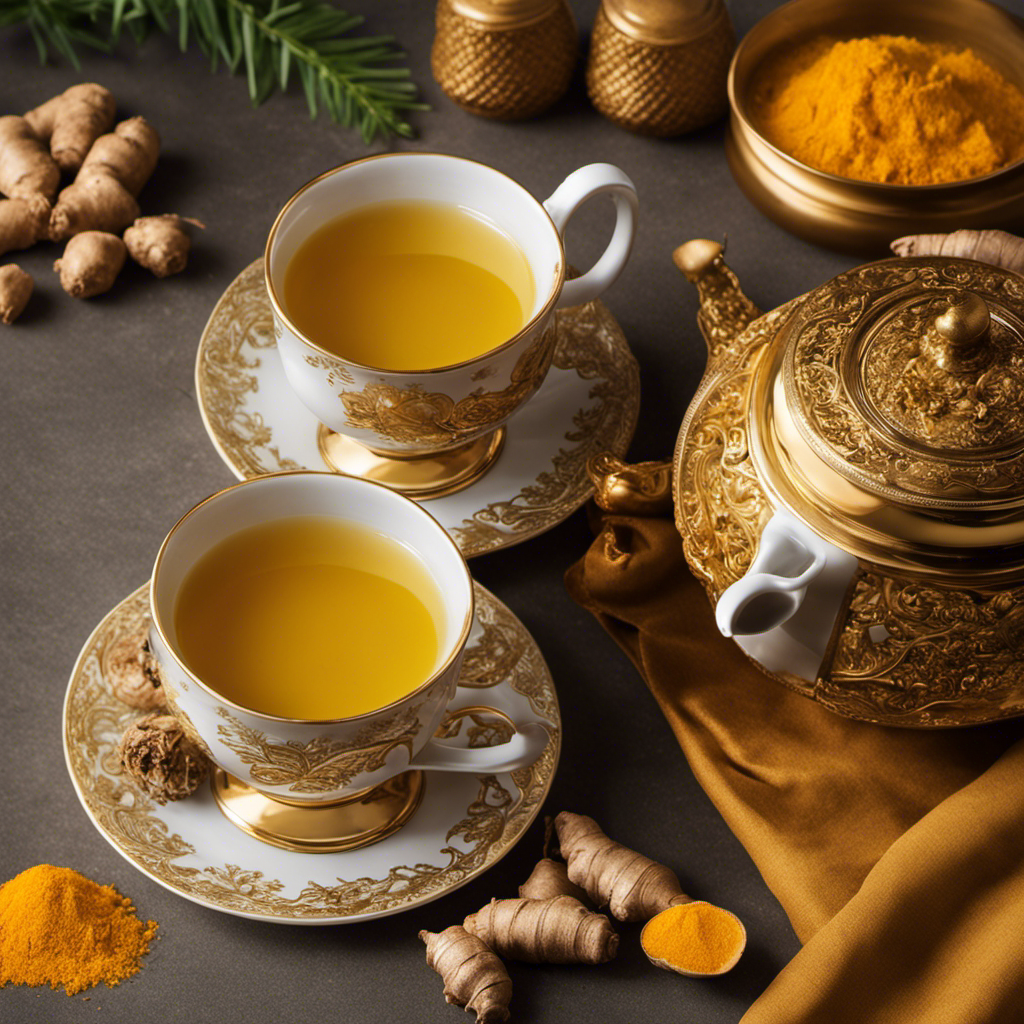
Are you in need of a calming and revitalizing drink that provides many health advantages? Imperial Organic Golden Turmeric Ginger Tea is the perfect choice for you.
This delightful blend combines the earthy notes of turmeric with the zesty kick of ginger, resulting in a harmonious marriage of flavors.
Not only does this tea provide a warm and comforting experience, but it also boasts a myriad of health benefits.
So, grab your favorite mug and get ready to embark on a journey of wellness and flavor with Imperial Organic Golden Turmeric Ginger Tea.
Key Takeaways
- Imperial Organic Golden Turmeric Ginger Tea has anti-inflammatory properties that can help reduce inflammation and alleviate symptoms of conditions like arthritis and joint pain.
- It aids in weight loss by boosting metabolism and promoting fat burning.
- The tea enhances digestion, reduces bloating, and increases feelings of fullness.
- It is rich in antioxidants and can boost the immune system for overall wellbeing.
Health Benefits of Turmeric Ginger Tea
You’ll love the health benefits of drinking turmeric ginger tea!
This golden elixir is not only delicious but also packed with a plethora of benefits for your wellbeing.
Turmeric ginger tea is renowned for its anti-inflammatory properties, which can help reduce inflammation in the body and alleviate symptoms of conditions such as arthritis and joint pain.
Additionally, the combination of turmeric and ginger in this tea can aid in weight loss by boosting metabolism and promoting fat burning.
The active compounds in turmeric and ginger work together to enhance digestion, reduce bloating, and increase feelings of fullness, making it a great addition to any weight loss regimen.
Now, let’s move on to how to make this golden turmeric ginger tea at home.
How to Make Golden Turmeric Ginger Tea
To make this delicious tea, start by bringing water to a boil in a small pot. Once the water is boiling, follow these simple steps to create a soothing cup of golden turmeric ginger tea:
- Add 1 teaspoon of imperial organic golden turmeric ginger tea leaves to a tea infuser or teapot.
- Pour the boiling water over the tea leaves and let it steep for 5-7 minutes.
- Remove the tea infuser or strain the tea leaves from the pot.
- Add a squeeze of lemon juice or a teaspoon of honey for added flavor, if desired.
Golden turmeric ginger tea offers a wealth of health benefits. The combination of turmeric and ginger provides anti-inflammatory properties, aids digestion, and boosts the immune system. This tea is also rich in antioxidants and can help reduce inflammation and promote overall wellbeing.
With its warm and earthy flavor, this golden turmeric ginger tea is a delightful and rejuvenating beverage to enjoy throughout the day.
The Origins of Turmeric Ginger Tea
If you’re curious about the origins of this soothing beverage, it has been enjoyed for centuries in various cultures around the world.
Turmeric ginger tea holds great cultural significance and has long been used in Ayurveda, the traditional Indian system of medicine. Both turmeric and ginger have been prized for their medicinal properties, and when combined, they create a powerful elixir. In Ayurveda, this tea is believed to have numerous health benefits, including reducing inflammation, boosting immunity, and aiding digestion.
The warm and spicy flavors of turmeric and ginger create a comforting and aromatic drink that can be enjoyed at any time of the day.
Now that you know about the origins and cultural significance of turmeric ginger tea, let’s explore the best time to enjoy a cup.
Best Time to Enjoy a Cup of Turmeric Ginger Tea
When consumed in the morning or before bed, turmeric ginger tea can provide a soothing and invigorating start or end to your day. This delightful beverage offers numerous benefits for digestion, making it an excellent choice for both morning and evening consumption.
Here are three reasons why you should incorporate turmeric ginger tea into your daily routine:
-
Boosts digestion: The combination of turmeric and ginger in this tea stimulates the production of digestive enzymes, aiding in the breakdown of food and promoting a healthy gut.
-
Reduces bloating: Turmeric ginger tea possesses anti-inflammatory properties that can help reduce bloating and discomfort, making it an ideal choice after a heavy meal.
-
Calms the stomach: Ginger has been used for centuries to alleviate nausea and indigestion, making turmeric ginger tea a natural remedy for an upset stomach.
Now that you know the benefits of turmeric ginger tea, let’s explore some tips for enhancing its flavor and maximizing its potential.
Tips for Enhancing the Flavor of Turmeric Ginger Tea
Enhancing the flavor of turmeric ginger tea can be done by adding a squeeze of lemon or a dash of honey. These simple additions can transform your tea into a delightful and refreshing beverage. But why stop there? With a little creativity, you can take your turmeric ginger tea to the next level. Try experimenting with different ingredients to create unique and flavorful tea recipes. For example, you can add a pinch of cinnamon for a warm and spicy twist, or a few slices of fresh orange for a citrusy kick. Don’t be afraid to think outside the box and pair your turmeric ginger tea with food. It can be a perfect accompaniment to a light salad or a savory sandwich. Let your taste buds guide you and enjoy the endless possibilities of turmeric ginger tea!
| Creative Turmeric Ginger Tea Recipes | Pairing Turmeric Ginger Tea with Food |
|---|---|
| 1. Turmeric Ginger Chai Latte | 1. Grilled Salmon with Turmeric |
| 2. Golden Turmeric Smoothie | 2. Turmeric Ginger Chicken Stir-Fry |
| 3. Turmeric Ginger Iced Tea | 3. Turmeric Ginger Rice |
| 4. Turmeric Ginger Lemonade | 4. Turmeric Ginger Roasted Veggies |
| 5. Turmeric Ginger Golden Milk | 5. Turmeric Ginger Salad Dressing |
Frequently Asked Questions
Can I Drink Turmeric Ginger Tea if I Have a Sensitive Stomach or Digestive Issues?
If you have a sensitive stomach or digestive issues, it’s important to consult with a healthcare professional before drinking turmeric ginger tea. They can assess whether it’s suitable for you and discuss potential benefits for weight loss and inflammation.
Is Turmeric Ginger Tea Safe to Consume During Pregnancy or While Breastfeeding?
During pregnancy or while breastfeeding, it is important to consider the safety of consuming turmeric ginger tea. It is advised to consult with your healthcare provider about the recommended dosage and potential benefits for your overall health.
Can I Add Honey or Other Sweeteners to Enhance the Taste of Turmeric Ginger Tea?
Yes, you can add honey or other sweeteners to enhance the taste of turmeric ginger tea. Not only will it make the tea more enjoyable, but honey also has its own health benefits, such as soothing a sore throat and boosting your immune system.
Does Turmeric Ginger Tea Interact With Any Medications or Supplements?
Turmeric ginger tea can interact with medications and supplements. It’s important to consult with a healthcare professional to ensure its safety. However, it’s worth noting that turmeric ginger tea may offer potential benefits for inflammation.
Are There Any Potential Side Effects or Risks Associated With Drinking Turmeric Ginger Tea Regularly?
Drinking turmeric ginger tea regularly can have potential benefits for your health. However, it’s important to be aware of potential side effects or risks. Consult with a healthcare professional for personalized advice.
Conclusion
So now you know the incredible health benefits of Imperial Organic Golden Turmeric Ginger Tea. By incorporating this delicious and soothing beverage into your daily routine, you can experience a wide range of benefits. These include reducing inflammation, boosting immunity, improving digestion, and promoting relaxation.
Don’t wait any longer, start brewing your own cup of this golden elixir today and witness the magic for yourself. Remember, a warm and comforting cup of Turmeric Ginger Tea is the perfect companion for any time of day – morning, afternoon, or evening.
Cheers to good health!
Noah, the Editor-in-Chief at Cappuccino Oracle, plays a pivotal role in shaping the voice and vision of our renowned platform. With an unwavering passion for coffee, coffee alternatives, and tea, Noah leads Cappuccino Oracle towards new horizons in the realm of coffee journalism.
Beyond his professional responsibilities, Noah serves as a mentor and guiding force for his team. His dedication to journalistic excellence and genuine love for coffee, coffee alternatives, and tea continue to inspire and motivate the Cappuccino Oracle family. In the ever-evolving world of these beverages, Noah’s leadership ensures that our platform remains at the forefront, delivering enlightening and enjoyable content to our readers worldwide.
Turmeric Tea
Powdered Turmeric Tea
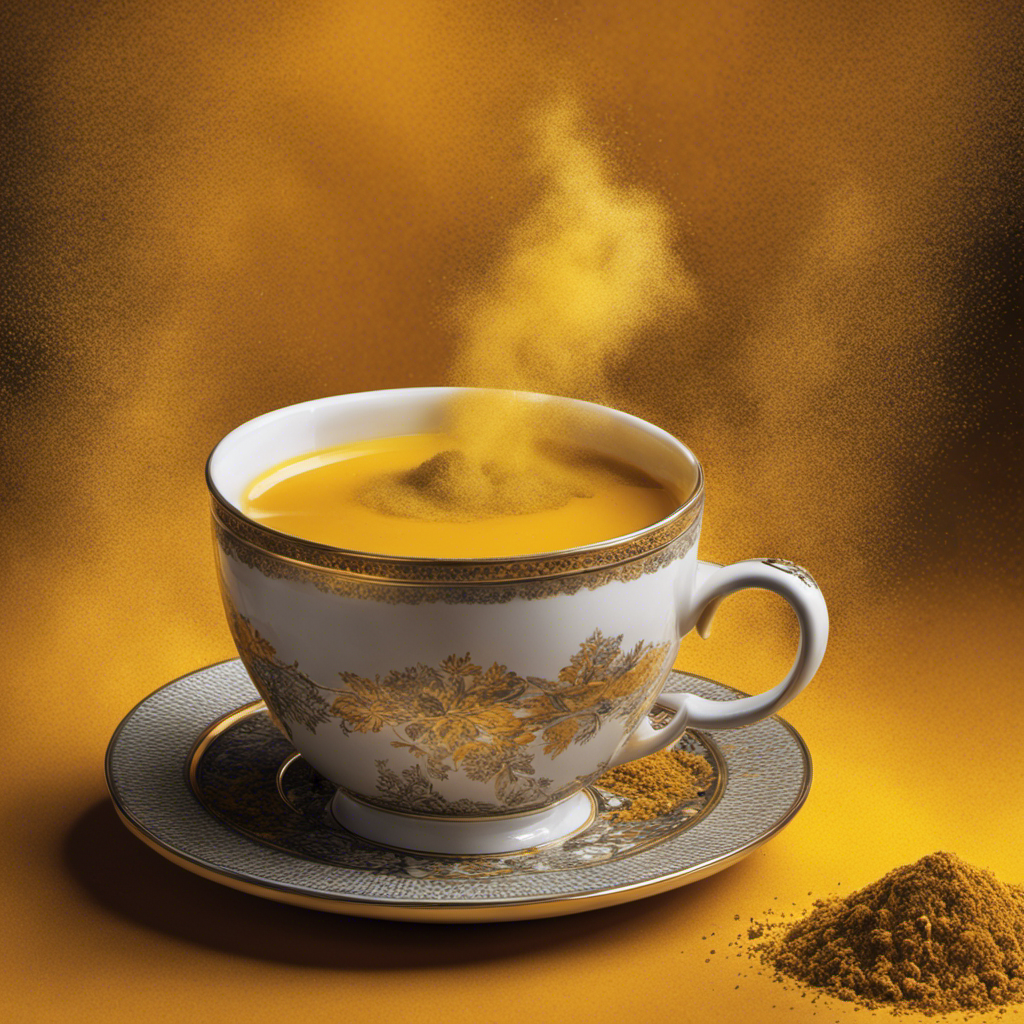
I understand your skepticism about yet another health trend promising miraculous results. However, powdered turmeric tea could actually be the answer. As a food and beverage scientist, I have thoroughly researched and discovered convincing evidence backing the health benefits of this golden elixir.
From its potent anti-inflammatory properties to its potential to boost brain health, turmeric tea is worth exploring. So, let’s dive into the science behind this ancient remedy and discover how to make the most of its potential.
Key Takeaways
- Powdered turmeric tea contains curcumin, which has anti-inflammatory, antioxidant, and anticancer effects.
- Regular consumption of powdered turmeric tea may reduce the risk of chronic diseases like heart disease, diabetes, and cancer.
- Powdered turmeric tea aids in digestion and relieves gastrointestinal discomfort.
- Drinking powdered turmeric tea can potentially enhance brain function and improve cognitive health.
Health Benefits of Powdered Turmeric Tea
You’ll be amazed at the health benefits of powdered turmeric tea.
As a food and beverage scientist, I can attest to the numerous advantages of incorporating this powerful spice into your daily routine.
Turmeric, scientifically known as Curcuma longa, contains a bioactive compound called curcumin, which is responsible for its vibrant yellow color and potent medicinal properties.
Research studies have shown that curcumin possesses anti-inflammatory, antioxidant, and anticancer effects, making it a valuable addition to your diet.
Consuming turmeric tea may help reduce the risk of chronic diseases such as heart disease, diabetes, and cancer.
Additionally, turmeric tea can aid in digestion, boost immunity, and improve brain function.
To maximize the benefits, consider adding black pepper or a healthy fat source like coconut oil to enhance curcumin absorption.
Experiment with different turmeric tea recipes to find your favorite combination and enjoy the remarkable health benefits of this ancient spice.
How to Make Powdered Turmeric Tea
Mix together the ground turmeric, ginger, black pepper, and honey in a saucepan. The combination of these ingredients creates a flavorful and aromatic base for powdered turmeric tea.
Here are some reasons why you should consider trying this delightful beverage:
-
Boosts immune system: Turmeric is rich in curcumin, a compound known for its immune-boosting properties.
-
Anti-inflammatory effects: Curcumin has been shown to reduce inflammation in the body, which may help alleviate symptoms of chronic conditions such as arthritis or inflammatory bowel disease.
-
Supports digestion: Ginger and black pepper in the tea can aid in digestion and relieve gastrointestinal discomfort.
-
Versatility: Powdered turmeric tea can be used as a base for other delicious beverages like turmeric lattes or smoothies.
Different Variations of Powdered Turmeric Tea
To change things up and add variety to your turmeric beverage, consider experimenting with different flavors and ingredients.
Powdered turmeric tea is not only known for its vibrant yellow color and distinct earthy taste but also for its potential health benefits.
Adding complementary flavors like ginger, cinnamon, or honey can enhance the overall taste profile of your turmeric tea.
Additionally, you can incorporate other ingredients such as lemon, black pepper, or cardamom to further enhance the flavor and add a unique twist.
These variations not only provide different taste experiences but can also provide additional health benefits due to the synergistic effects of the combined ingredients.
So, don’t be afraid to get creative and explore different combinations to find the perfect flavor blend for your powdered turmeric tea.
Remember to adjust the quantities of the ingredients to suit your personal preference.
Enjoy your turmeric tea as a warming beverage or try it chilled over ice for a refreshing twist.
Tips for Enhancing the Flavor of Powdered Turmeric Tea
Don’t forget to experiment with different spices and herbs to enhance the flavor of your turmeric beverage. Here are some tips for enhancing the taste of your powdered turmeric tea:
- Add a pinch of cinnamon for a warm and aromatic flavor.
- Try a dash of ginger for a spicy kick.
- Experiment with a sprinkle of cardamom for a unique and exotic taste.
- Consider adding a touch of black pepper to enhance the absorption of curcumin, the active compound in turmeric.
Brewing techniques can also play a role in enhancing the flavor of your turmeric tea. Make sure to steep the tea for the recommended time to allow the flavors to fully develop. Additionally, using high-quality turmeric powder can make a significant difference in taste. Remember to choose a reputable brand that focuses on sourcing and processing methods to ensure the highest quality product.
Potential Side Effects of Consuming Powdered Turmeric Tea
Consuming powdered turmeric tea may have potential side effects that should be considered.
As a food and beverage scientist, it is important to provide objective and unbiased information about the long-term effects and interactions with medication of powdered turmeric tea.
Turmeric, scientifically known as Curcuma longa, contains a compound called curcumin, which has been extensively studied for its health benefits. However, it is also important to note that curcumin can interact with certain medications, such as blood thinners, leading to potential complications.
Additionally, high doses of curcumin may cause digestive issues such as stomach upset and diarrhea.
Although turmeric tea has been associated with various health benefits, including anti-inflammatory and antioxidant properties, it is crucial to consult with a healthcare professional before incorporating it into your diet, especially if you are taking medications or have any underlying health conditions.
Conclusion
In conclusion, powdered turmeric tea is a remarkable beverage that offers numerous health benefits. Its chemical composition, including the presence of curcumin, provides antioxidant and anti-inflammatory properties that can support overall well-being.
Scientific research has shown its potential to improve digestion, boost immunity, and even reduce the risk of chronic diseases. However, it is crucial to consume turmeric tea in moderation and be aware of potential side effects, such as digestive issues or allergic reactions.
With its rich nutritional content and promising health effects, powdered turmeric tea can be a valuable addition to a balanced diet.
Arf, an author and an innovative enthusiast of coffee, coffee alternatives, and tea, plays a crucial role as a contributor to the esteemed Cappuccino Oracle platform. Renowned for his curiosity and passion for these captivating beverages, Arf has carved out a unique space for himself in the world of exploration and writing. He realized that coffee, coffee alternatives, and tea are not mere drinks to keep one awake, but universes of flavors and stories waiting to be explored.
Arf’s articles for Cappuccino Oracle blend meticulous research with personal experiences, providing readers with an in-depth understanding of various types of coffee, coffee alternatives, and tea, along with their unique characteristics, cultures, and histories. His honest reviews and engaging narratives guide readers on their own journeys, helping them discover their preferences and find their perfect brew.
Turmeric Tea
Turmeric Tea Effects
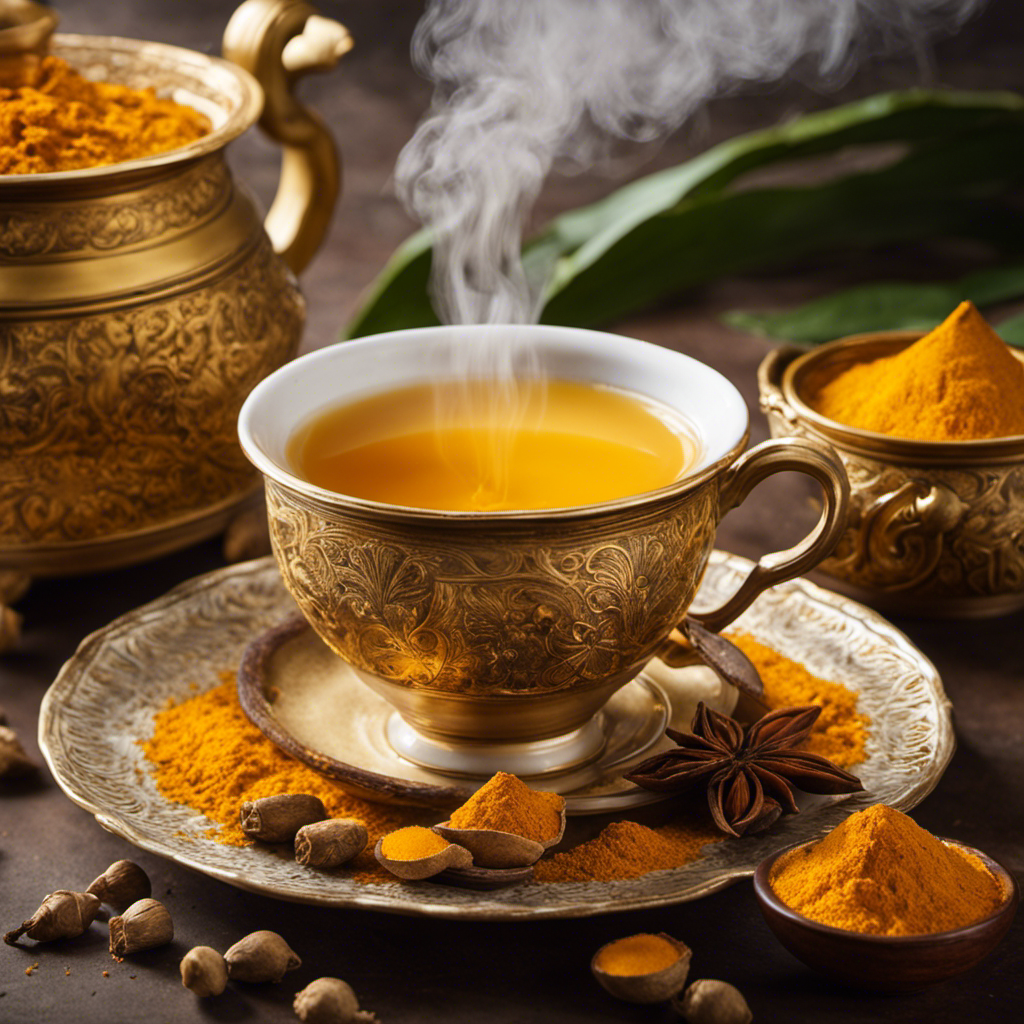
Have you ever thought about the health advantages of turmeric tea? Trust me, it’s a game-changer.
This golden elixir is packed with a multitude of benefits that can improve your overall well-being. From its potent anti-inflammatory properties to its positive effects on brain function, turmeric tea is a powerful ally for your health.
But, like anything, there are potential side effects to consider. So, let’s dive in and explore the wonderful world of turmeric tea effects together.
Key Takeaways
- Turmeric tea has powerful medicinal properties and anti-inflammatory effects.
- It can help improve brain function and reduce the risk of chronic diseases.
- Drinking turmeric tea can benefit digestive health by reducing inflammation and promoting better digestion.
- However, it is important to consult a healthcare professional before making significant changes to your daily routine.
Health Benefits of Turmeric Tea
You’ll be amazed by the various health benefits of turmeric tea. This golden-hued beverage has been used for centuries in traditional medicine for its powerful medicinal properties.
One of the key health benefits of turmeric tea is its anti-inflammatory properties. Curcumin, the active compound found in turmeric, has been shown to reduce inflammation in the body, which can help alleviate symptoms of conditions like arthritis and inflammatory bowel disease.
Additionally, turmeric tea is known for its antioxidant effects, which can protect the body against damage caused by harmful free radicals. It has also been linked to improved brain function and a reduced risk of chronic diseases, such as heart disease and cancer.
However, it’s important to note that excessive consumption of turmeric tea may have some risks, including digestive issues and interactions with certain medications. It’s always best to consult with a healthcare professional before incorporating turmeric tea into your daily routine.
Anti-Inflammatory Properties of Turmeric Tea
The anti-inflammatory properties of turmeric tea can help reduce swelling and pain. This powerful spice contains a compound called curcumin, which has been shown to have anti-inflammatory effects. When consumed in the form of tea, curcumin is easily absorbed into the bloodstream, allowing it to target inflammation throughout the body.
Here are some benefits of turmeric tea:
-
Helps with arthritis: Turmeric tea can alleviate the symptoms of arthritis by reducing inflammation in the joints.
-
Promotes weight loss: Curcumin in turmeric tea has been found to aid in weight loss by boosting metabolism and reducing fat tissue growth.
-
Anti-aging effects: The antioxidants in turmeric tea help combat free radicals, which can accelerate the aging process.
Incorporating turmeric tea into your daily routine can be a natural and effective way to manage inflammation, promote weight loss, and reap the anti-aging benefits of this incredible spice.
Turmeric Tea and Digestive Health
When consumed regularly, turmeric tea can improve your digestive health. Turmeric, a vibrant yellow spice commonly used in curry dishes, contains a compound called curcumin that has been shown to have anti-inflammatory and antioxidant properties. These properties can help reduce inflammation in the digestive tract and promote better digestion. Turmeric tea can also aid in weight loss by increasing metabolism and promoting fat burning. Additionally, turmeric tea has been found to support skin health by reducing inflammation and promoting a healthy complexion. Incorporating turmeric tea into your daily routine can be a simple and effective way to support your digestive health, promote weight loss, and improve the overall appearance of your skin.
| Benefits of Turmeric Tea | |
|---|---|
| 1. Improved Digestion | Turmeric tea can reduce inflammation in the |
| digestive tract and promote better digestion. | |
| ————————– | ———————————————— |
| 2. Weight Loss | Turmeric tea increases metabolism and aids in |
| fat burning, supporting weight loss efforts. | |
| ————————– | ———————————————— |
| 3. Skin Health | Turmeric tea reduces inflammation and promotes |
| a healthy complexion, improving skin health. |
Turmeric Tea for Brain Function
Including turmeric tea in my daily routine has been a game-changer for my brain health and cognitive function. The active ingredient in turmeric, called curcumin, has been shown to have powerful antioxidant and anti-inflammatory properties, which can benefit the brain in numerous ways.
Here are two key benefits of turmeric tea for brain function:
-
Improved Memory: Curcumin has been found to enhance memory and reduce the risk of age-related cognitive decline. It promotes the growth of new neurons and increases the levels of brain-derived neurotrophic factor (BDNF), a protein that plays a crucial role in memory formation.
-
Reduced Brain Fog: Turmeric tea can help clear brain fog and improve mental clarity. Curcumin has been shown to increase blood flow to the brain, enhancing oxygen and nutrient delivery, which can boost cognitive performance and focus.
Incorporating turmeric tea into my daily routine has been a simple and effective way to support my brain health and improve my cognitive abilities.
Potential Side Effects of Turmeric Tea
Adding turmeric to my daily routine may come with some potential side effects, such as digestive issues or allergic reactions. However, it’s important to note that these side effects are rare and usually occur in individuals who consume large amounts of turmeric or have pre-existing conditions.
When it comes to turmeric tea and weight loss, research suggests that the active compound in turmeric, called curcumin, may have anti-obesity effects by reducing inflammation and promoting fat metabolism.
Additionally, turmeric tea has been associated with various skin health benefits. Its antioxidant and anti-inflammatory properties may help improve skin complexion, reduce acne, and soothe skin irritations.
As with any dietary supplement, it’s always a good idea to consult with a healthcare professional before making significant changes to your daily routine.
Conclusion
In conclusion, turmeric tea is a powerhouse of health benefits. Its anti-inflammatory properties can help reduce chronic pain and inflammation in the body.
It also supports digestive health by aiding in digestion and reducing bloating.
Additionally, turmeric tea has been found to improve brain function and boost memory. However, it’s important to note that excessive consumption of turmeric tea may lead to stomach upset or heartburn.
So, remember to enjoy this golden elixir in moderation for optimal benefits. Cheers to a healthier you!
In the vast and diverse world of coffee, coffee alternatives, and tea, Olivia has found her calling. As an author and a dedicated coffee and tea aficionado, her work for Cappuccino Oracle reflects her profound love and understanding of the intricate complexities found within these beverages. Olivia’s passion for the subject serves as both a catalyst for her creativity and a connection point with her audience.
Olivia’s appreciation for coffee, coffee alternatives, and tea blossomed at an early age. She discovered that these beverages invigorated her senses and stimulated her creative spirit. From the nuanced flavors of single-origin roasts to the captivating narratives intertwined with coffee, coffee alternatives, and tea trade and culture, Olivia found an unlimited source of inspiration in her daily cup.
Her love for these beverages and her talent for storytelling eventually converged at Cappuccino Oracle. As an author, Olivia’s mission is to illuminate the intricate tapestry that makes up the world of coffee, coffee alternatives, and tea. Her articles span a diverse range of topics, encompassing everything from the unique flavors of different brews to the sociocultural history intertwined with their cultivation and consumption.
-

 Coffee Industry and News4 weeks ago
Coffee Industry and News4 weeks agoCappuccino Oracle Acquires Il Cibo Immaginario Domain
-
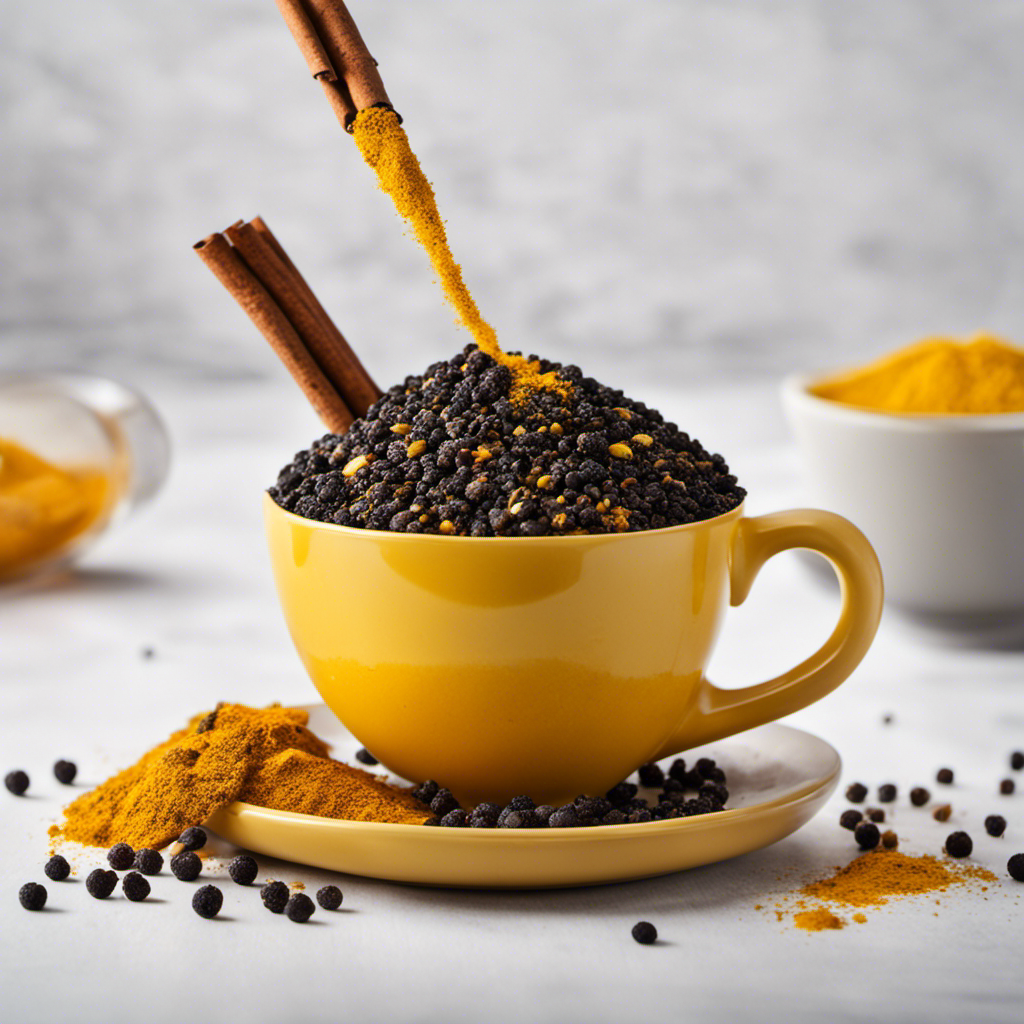
 Turmeric Tea3 weeks ago
Turmeric Tea3 weeks agoTurmeric Ginger, Cinnamon Black Pepper Tea Recipe
-

 Turmeric Tea4 weeks ago
Turmeric Tea4 weeks agoTurmeric Ginger, Cinnamon Lemon Tea Benefits
-
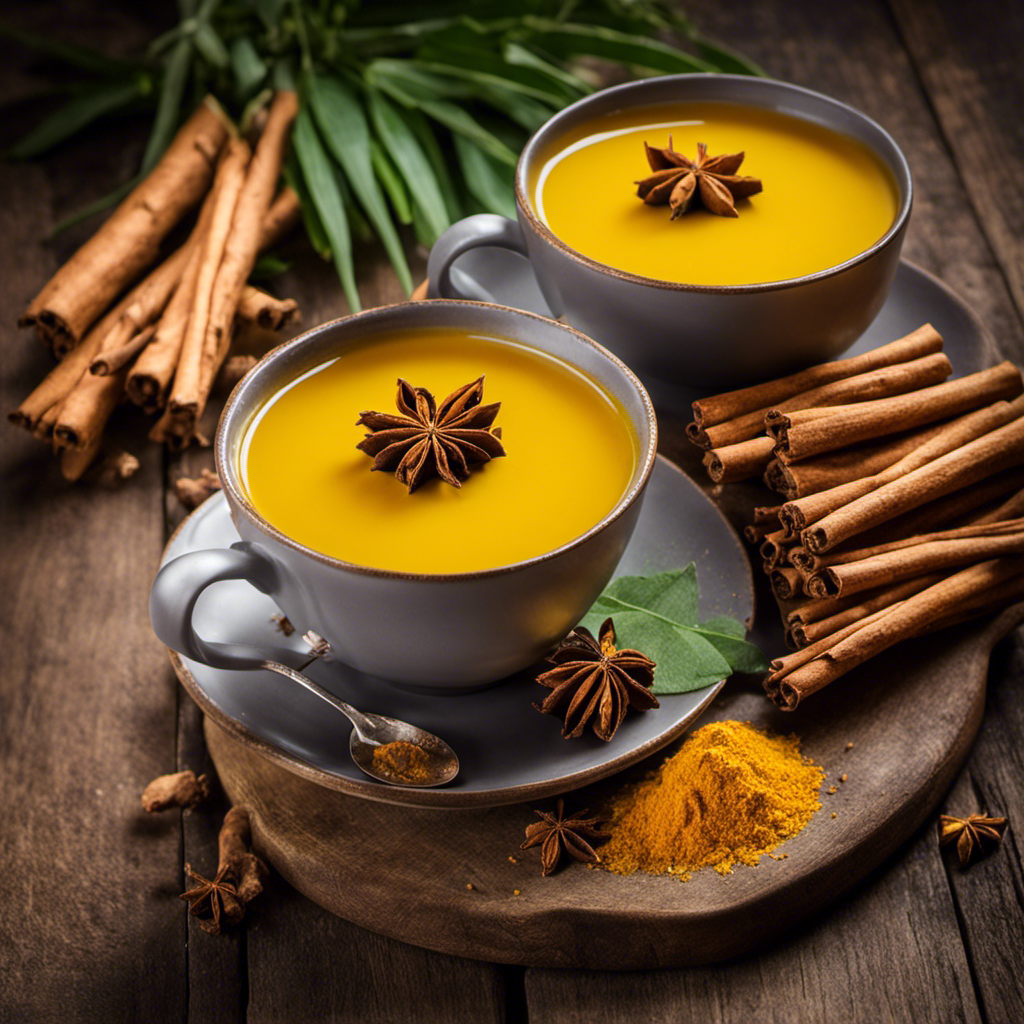
 Turmeric Tea4 weeks ago
Turmeric Tea4 weeks agoHow to Make Turmeric Ginger and Cinnamon Tea
-
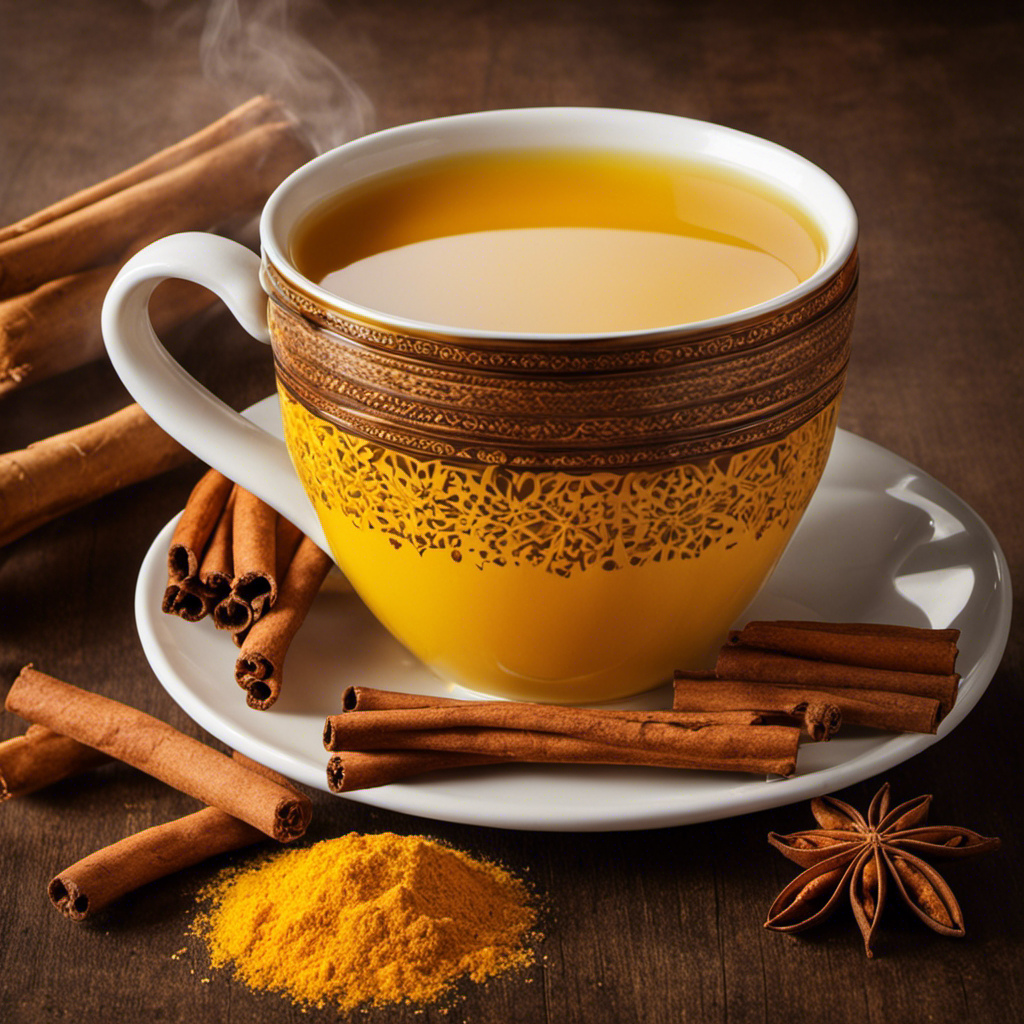
 Turmeric Tea3 weeks ago
Turmeric Tea3 weeks agoTurmeric Ginger Cinnamon Tea for Weight Loss
-
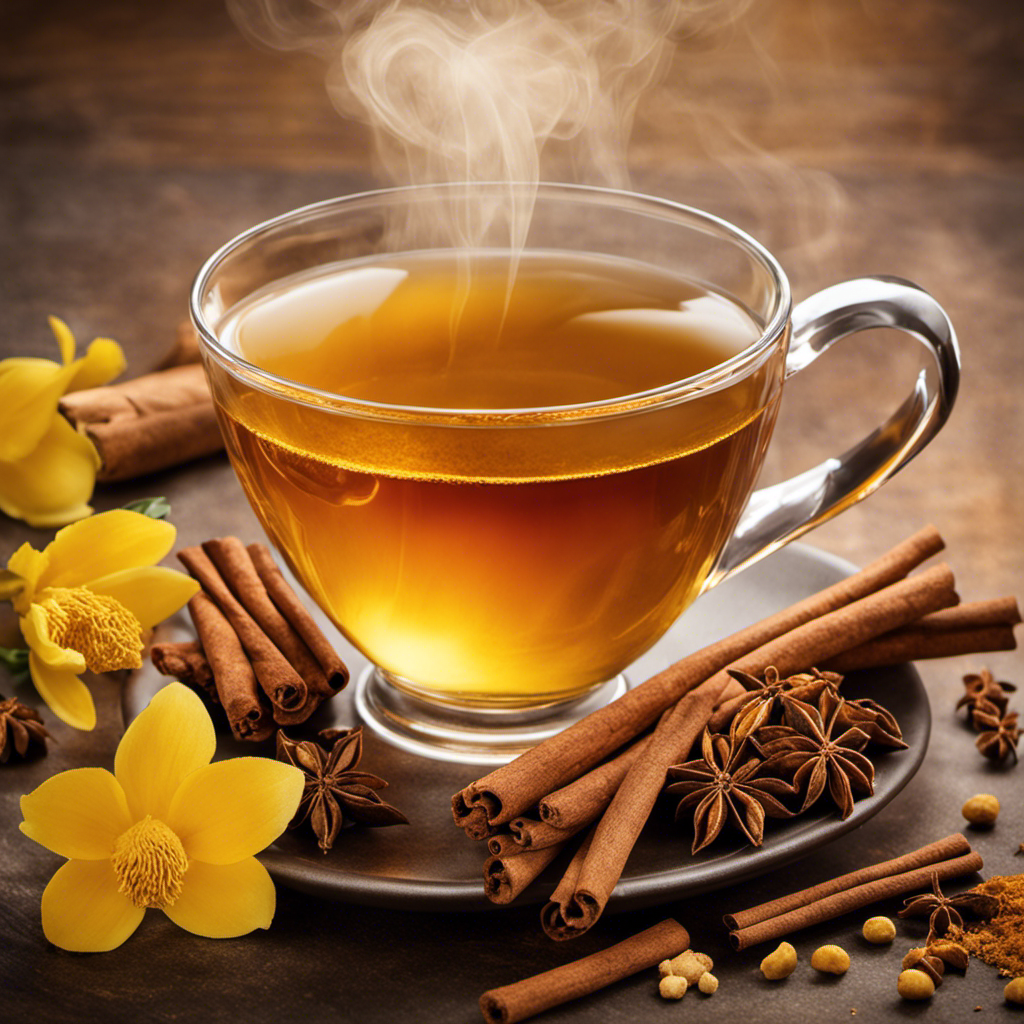
 Turmeric Tea4 weeks ago
Turmeric Tea4 weeks agoCinnamon, Turmeric, Ginger and Nutmeg Tea Benefits
-

 Americano2 weeks ago
Americano2 weeks agoHow Many Calories Are in a Americano
-
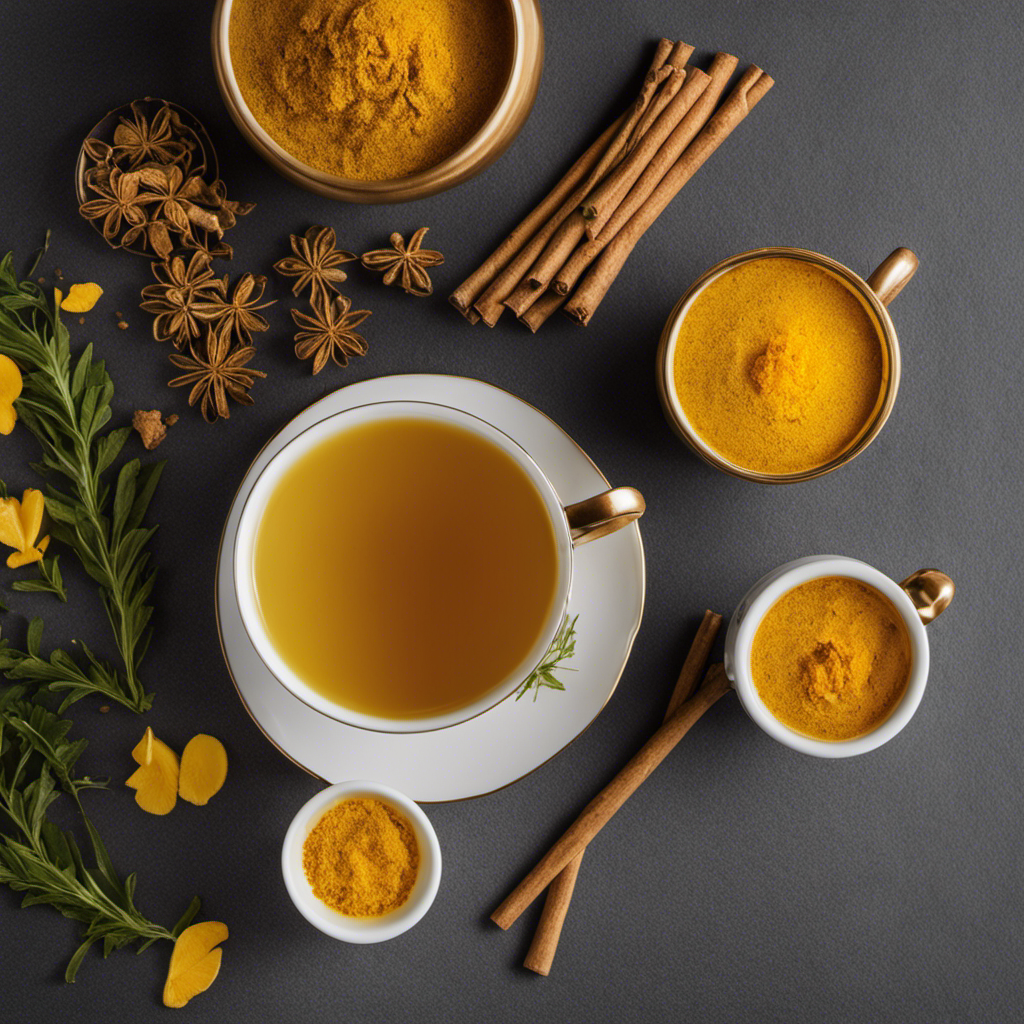
 Turmeric Tea3 weeks ago
Turmeric Tea3 weeks agoTurmeric Ginger Licorice Tea Benefits


















